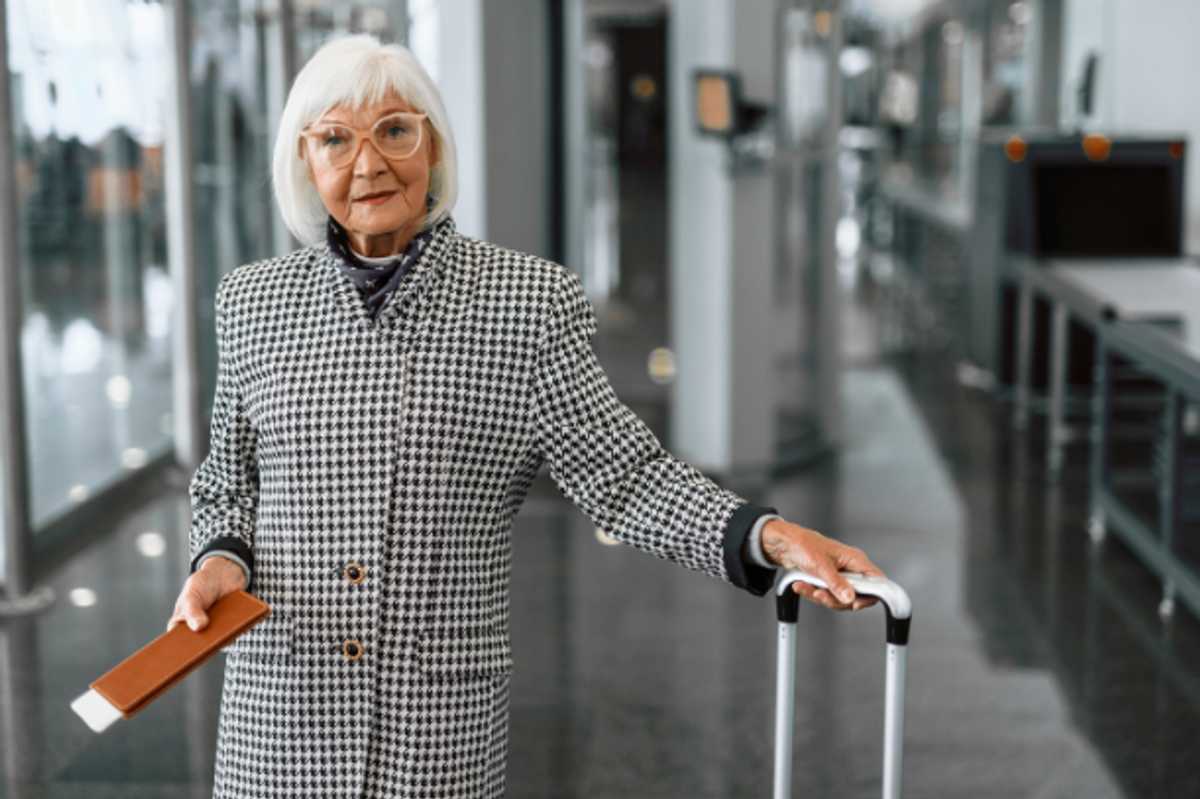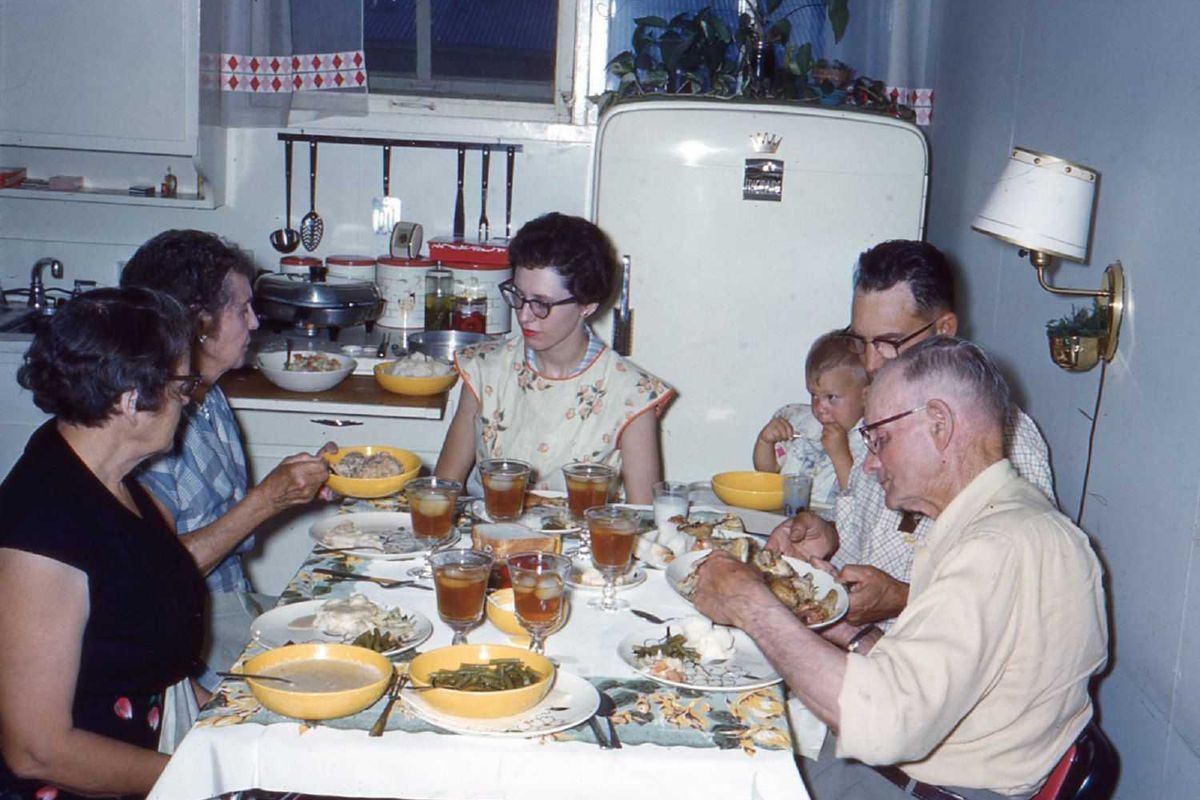To quote the great poet Bret Michaels of the glam band Poison, "Every rose has its thorn." In other words, for those who don't speak '80s hair-metal, there are downsides to even the most obviously positive situations and/or personality traits.
Being intelligent is often regarded as one of the most important characteristics a person can have. After all, one might imagine that the smarter you are, the easier life will be. This isn't always the case. Much like how having a sense of humor often carries a sadness with it, being highly intelligent has its downsides. But once one recognizes those potential roadblocks, they can often be overcome.
Katarina Esko, a "coach" for the "highly intelligent," has quite the following on social media regarding how one can recognize and manage their intelligence. In a two-part series on subtle signs of highly intelligent people, she breaks down nine traits an ultra-intelligent person might have.
(Note: While Esko defines herself an "executive coach," she is not a medically licensed professional or trained psychologist per her Disclaimer.)
She notes that there are sometimes challenges for the highly gifted. "They don't understand what's going on because they have forgotten their high intelligence." But once these issues are understood, they can be positively redirected. She states very clearly, "These are not flaws. These are just clues into how your mind actually works."
"Being misunderstood because you process things so fast"
Esko shares that this has been one of the biggest hurdles for her to get over on a personal level. "No matter how clearly you communicate something, it seems like other people just don't understand what you're thinking and your train of thought."
She claims that it's not so much about the intelligent person's inability to communicate. She says that instead, "It's about you skipping so many steps that other people are just not able to process the way you process."
Because the highly intelligent person is accustomed to understanding a concept so quickly, they forget sometimes that others need to catch up. "I always wondered 'why are people so slow? Why are they wasting time?'"
She says once she realized that others don't make connections or see patterns the way she does, she changed her approach. "I started to explain my train of thought, giving more steps to how I think about things."
"Curiosity"
The highly intelligent, Esko says, are often "extremely curious" about a lot of things. Healthline backs this claim up in their 2022 article, "11 Signs of Intelligence Proving There’s More Than One Way to Be a Genius." Because one might carry around a plethora of information, this leads neural pathways to seek out even more information. Some might call it a rabbit hole of constant learning.
"You have a lot of knowledge and a lot of information from a variety of fields in life." She notes they might have a lot of information because they have the curiosity. It's a chicken/egg situation. Are you curious because you're already intelligent, or does the intelligence lead to more curiosity? Either way, she says, curiosity "is a sign of you needing a lot of intellectual stimulation."
"Recognizing patterns"
According to Esko, this is another big sign of being extremely gifted, and it's actually pretty cool. In a separate video entitled "Highly intelligent people are having conversations telepathically." Esko describes the feeling two extremely smart people tend to have when they're conversing: "You keep skipping so many steps and you feel like every other sentence that comes out of your mouth is like 'yeah I got it!'" She adds, "When you're able to recognize those patterns, you are very quick to come to the conclusion of where the other person is going. So before they're getting to the point, you're already replying to something not even said yet."
She does warn how confusing this can be for people who don't process information as quickly and/or recognize patterns. "They don't really understand that half of the conversation is happening telepathically, so to speak."
This can also lead to having a tendency to "cut others off" when they're speaking because one might see where it's going before they even do. As long as the highly intelligent person is aware that they may be a few steps ahead, they can usually adjust accordingly.
 Mind on overdrive GIF by Jef Caine
Mind on overdrive GIF by Jef Caine
"Excellent memory"
The highly intelligent, unsurprisingly, often have an ability to remember things, people, and events in great detail.
Esko notes how much this might help when problem-solving. She claims that while an intelligent person "retains a lot of information," they use it all when they're solving problems. "Everything they remember from throughout their lives (is used) to solve these complex problems. This often leads to unique solutions that other people just don't seem to see."
"Thinking all the time"
Overthinkers out there, stand up. She shares, "You've probably noticed that you can't 'not' think. That your mind is constantly thinking about everything and 17 things at the same time."
Leon F Seltzer PhD backs this up in a 2021 article in Psychology Today. "High-IQ people tend to overthink or over-analyze things. They can avoid taking action until it's too late, and so they miss out on time-limited opportunities."
Esko adds that this can also lead to depression or anxiety. "Sometimes, if you're not thinking of something entertaining enough, your brain comes up with thoughts…which can lead to anxious or depressive thoughts."
In terms of causation, this gets very interesting, as she theorizes that it's not that highly intelligent people have anxiety. Rather, "it's a lack of intellectual stimulation."
"Overthinking which (leads to) problem solving"
A highly intelligent mind loves to problem-solve, Esko claims. "You are running 17 different simulations on what could go wrong, how things could end up, and how we could optimize things better."
She warns that, in her opinion, if we overthink too much, even with the hopes of optimizing the solution to a problem, you could "end up optimizing yourself out of the equation."
"High emotional awareness"
Not only is it said that highly intelligent people can have extremely intense emotions for themselves, they are often very intuitive when it comes to picking up on other people's intense emotions.
In an article by writer Saundra Montijo and medically reviewed by Lori Lawrenz, PsyD for Psych Central, it's stated: "High levels of empathy can make them (highly intelligent people) sense and feel the feelings of those around them, including others’ anxiety or stress."
Esko also notes, "This can be very overwhelming when you're walking into a room and get the vibe and start to see what kind of different emotions are going on. This can be extremely draining."
Take a beat and try to differentiate your own feelings from those of others. Empathy is a good thing, but not at the expense of your own mental health.
"Boredom that feels suffocating"
 Bored Sabrina at her desk. Giphy GIF by G. Klampfer Elektroanlagen GmbH
Bored Sabrina at her desk. Giphy GIF by G. Klampfer Elektroanlagen GmbH
Esko suggests, ""When your mind is not stimulated, you're not just bored. You are slowly dying inside." She says this last part with a smile, but her point is not lost."
However, there is some pushback on this notion. In contributing CNBC writer Tom Popomaronis's 2019 piece, he notes that many studies have concluded that those with high IQs are less easily bored. "The data found that those with a high IQ got bored less easily, leading them to be less active and spend more time engaged in thought" (The whole article is entitled "Lazy people are likely to be smarter, more successful, and better employees. Who knew?" This could give some people hope.)
"Constant inner dialogue"
This has been discussed in previous Upworthy articles, and it turns out "self-talk" could actually be a sign of the extremely intellectually gifted. Esko further explains, "You're not just thinking. You are having a conversation with yourself. You're analyzing things, you're questioning things, you're reflecting on things."
When used properly, this kind of self-talk can help people process information as it comes in quickly.
While Ekso has certainly made some points, take these intelligence markers with a grain of salt and engage in further research if you'd like to know more. Understanding ourselves better is always a worthy effort, and noticing signs of high intelligence in yourself and others can lead to improved emotional intelligence overall.






 Fun run with creative costumes: pasta and pups!Courtesy of runDisney
Fun run with creative costumes: pasta and pups!Courtesy of runDisney Galactic adventure awaits at nightfall in Batuu!Courtesy of runDisney
Galactic adventure awaits at nightfall in Batuu!Courtesy of runDisney Runners celebrate crossing the finish line at the 2025 Wine & Dine Half Marathon!Courtesy of runDisney
Runners celebrate crossing the finish line at the 2025 Wine & Dine Half Marathon!Courtesy of runDisney Disney's Tower of Terror photo with spooky bellhops.Courtesy of runDisney
Disney's Tower of Terror photo with spooky bellhops.Courtesy of runDisney

 Mind on overdrive
Mind on overdrive  Bored Sabrina at her desk.
Bored Sabrina at her desk. 